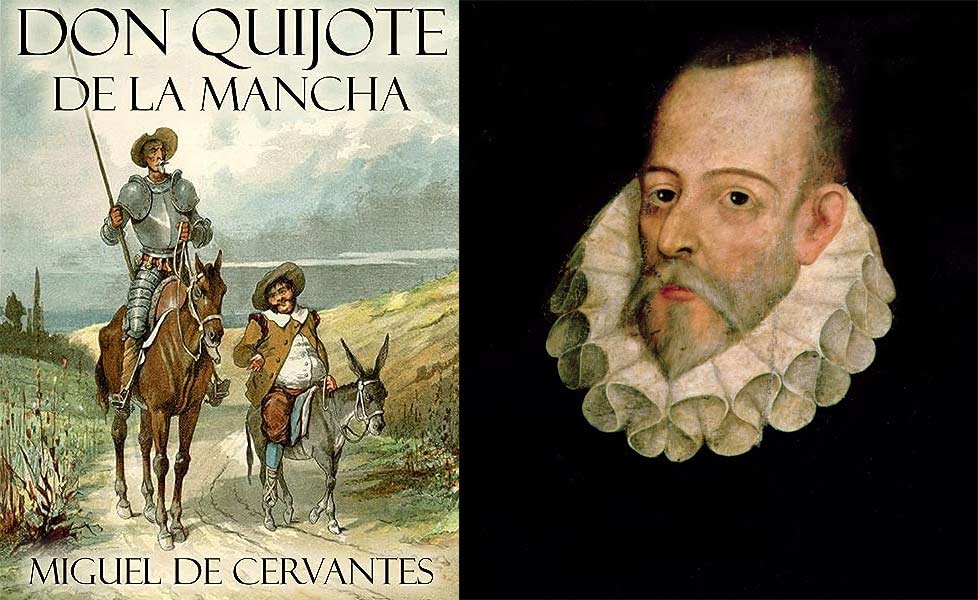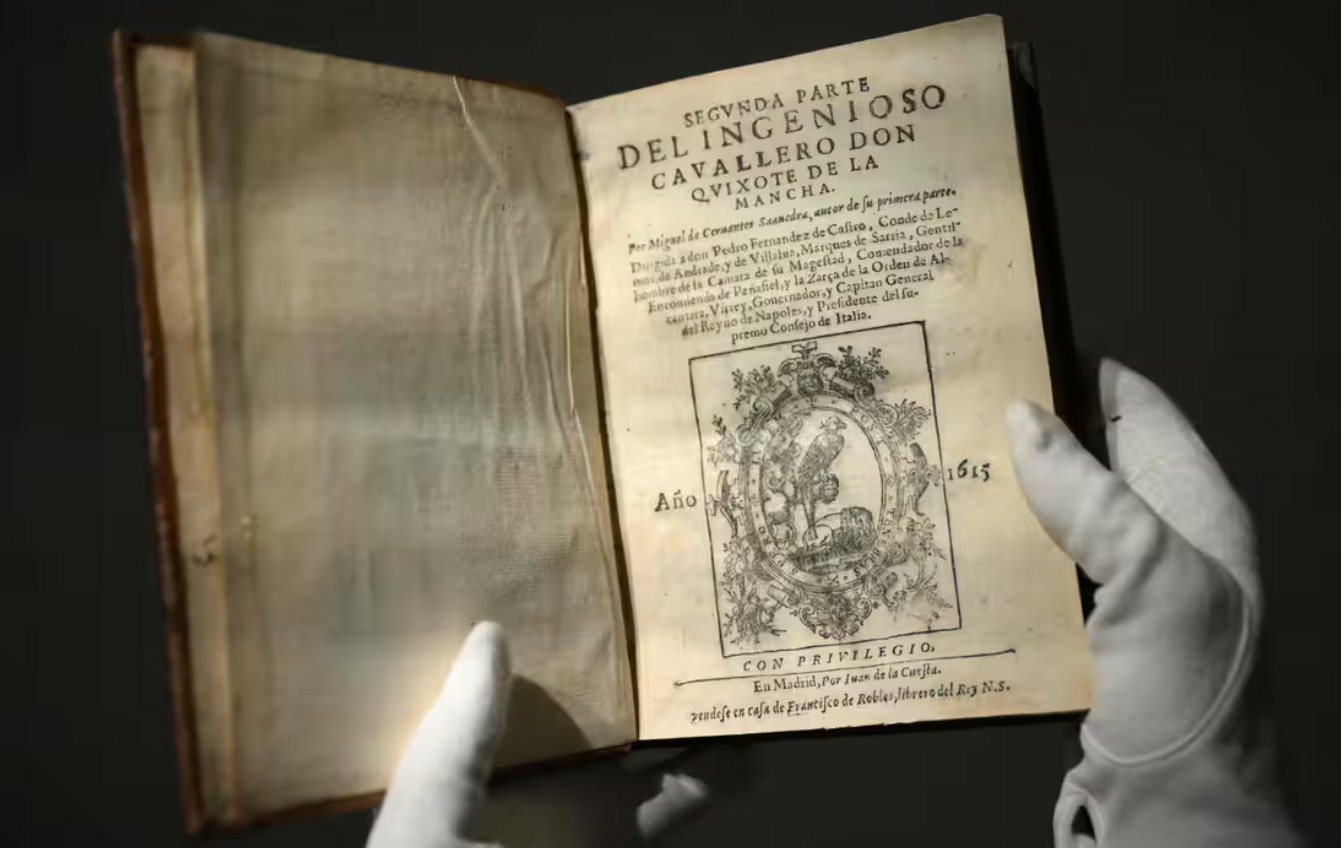Don Quixote, often hailed as the first modern novel, is a groundbreaking work of Western literature. Written by Spanish author Miguel de Cervantes and published in two parts, the first in 1605 and the second in 1615, the novel has become a timeless classic.

Who was Miguel de Cervantes?
Miguel de Cervantes Saavedra (1547-1616) was a Spanish writer, poet, and playwright who is widely regarded as one of the most important literary figures in history. Born in Alcalá de Henares, Spain, he lived a life full of adventures and hardships. At a young age, Cervantes worked as a chamber assistant for a famous cardinal and later enlisted in the Spanish army. It was during his time as a soldier that he lost the use of his left hand in the Battle of Lepanto (1571), resulting in his nickname, "the one-armed man of Lepanto."
In 1575, Cervantes' life took a dramatic turn when he was captured by Barbary pirates and spent five years in captivity. Upon his release, he struggled to find success as a playwright and eventually turned to writing prose. His masterpiece, Don Quixote, was born from this transition, proving to be an immediate success.
The Underlying Meaning of Don Quixote
"Don Quixote" is a comical and poignant story that follows the adventures of the titular character, an eccentric hidalgo (nobility) who becomes obsessed with chivalric romances. Believing himself to be a knight-errant, the delusional Don Quixote sets out on a series of chivalric quests, accompanied by his loyal squire, Sancho Panza. The novel can be read on various levels, providing a nuanced exploration of human nature, society, and the quest for truth amidst a world full of illusion and deception.
One interpretation of the novel focuses on the theme of reality versus illusion. Don Quixote's fervent belief in a world of chivalry and knightly valour leads him to misinterpret everyday situations, causing a series of absurd and comical misadventures. This delusional behaviour serves as a stark contrast to Sancho Panza's practical and down-to-earth nature, symbolising the different perspectives people occupy in the face of the world's realities.
The novel also provides a satirical critique of contemporary society through the fantastical adventures of its protagonists. As Don Quixote traverses the Spanish countryside, he encounters various individuals from different social classes, revealing the deficiencies and hypocrisies of his time. By exposing the folly of mankind and the moral decay of society, Cervantes encourages readers to question their own values and beliefs.
Finally, at its core, Don Quixote is a meditation on the power of literature and its ability to shape our beliefs, desires, and perceptions. The protagonist's obsession with chivalric tales serves as both a cautionary tale and a celebration of the imaginative and transformative power of storytelling.
Where is the Oldest Known Copy Stored?
The oldest known copy of the first part of "Don Quixote" is held in the Biblioteca Nacional de España (National Library of Spain) in Madrid. This institution serves as the primary repository for Spain's cultural and literary heritage and houses the first edition of the book published in 1605. Furthermore, the British Library contains the oldest known copy of the novel's second part, printed in 1615.

Over the centuries, "Don Quixote" has been translated into numerous languages and remains a vibrant part of the literary canon today. As the first modern novel, it has inspired countless adaptations, interpretations, and homages in art, music, theatre, and film. Through the timeless appeal and rich depth of Cervantes' masterpiece, the legacy of Don Quixote continues to enchant and inspire readers around the world.